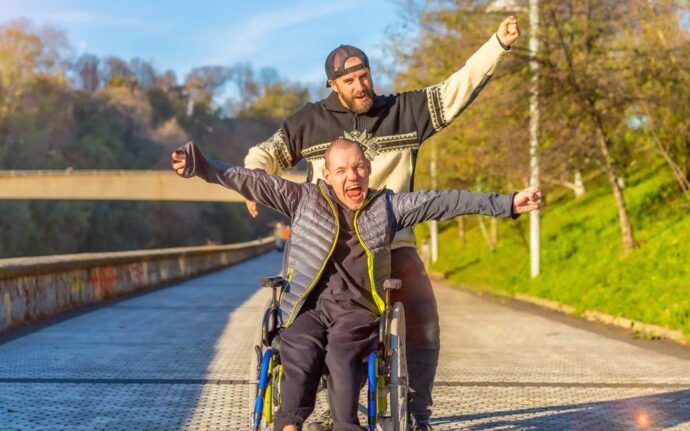Support worker

What’s the day-to-day job like?
Every person we support has their own support plan that describes what a good life means to them.
A support worker’s job is to make that plan become a reality, in a way that leaves the person with as much choice and independence as possible.
This means that each support worker’s day is different, depending on who they’re working with – but they’re likely to be supporting people with things like:
- Daily living tasks, such as going shopping, cooking, keeping their home clean and tidy, budgeting and paying bills
- Personal care, and staying healthy and well
- Staying connected to friends or family, and getting out and about
- Learning new skills, gaining qualifications and getting a job of their own
As well as different people, we have lots of different service types too.
You might find yourself suited to roles in a residential care home, or discover that you prefer working in supported living, making visits to people in community-based homes or running day-services where people visit you. Our friendly recruitment team can help you think through your options.
What qualifications or experience does a support worker need?
You don’t need a particular qualification to be a support worker. It’s always helpful if you’ve done similar work before, but your outlook and personality is by far the most important thing.
There’s no doubt that there are sometimes tough days when things don’t go to plan – so you’ll need to be patient and resilient. But there are also days when people achieve new things, meet new people or find a job that make it all worthwhile.
Please note that a few of our roles may specify the gender of the support worker, due to the individual needs of the person being supported.
What training opportunities are available in the role?
To get you up and running, we’ll pay you to take part in our mandatory induction and training programmes to make sure everyone stays safe and understands the role.
Beyond this, many of our support workers begin to work towards their health and social care diplomas and are supported by their line managers to achieve this. Read more about United Response’s training and apprenticeships.
What hours does this role need from me?
The number of hours worked each week will depend on the needs of the service you apply to, and there will be details in each job description. Most accommodation-based services operate on shift patterns.
Full time (37.5 hours) or part time roles are nearly always available. Many services also have a team of support workers on relief contracts, who don’t work fixed hours but can step in and help with shifts as and when they are needed.
What might I move on to do next?
Most of our senior staff began their careers as support workers, so the sky is the limit!
When promoted to senior support worker, you would take on additional responsibilities or a specialism such as healthy eating.
The most common next progression for support workers is then to become a Team Manager or Service Manager.
Alternatively, other support workers use the experience they’ve picked up working in services to apply for office roles, such as administration, book-keeping or training.
Where are you recruiting for support workers?
United Response runs around 300 services in locations across England and Wales. You can find the areas we operate in here.
Visit our vacancy search page to find support worker jobs near you.